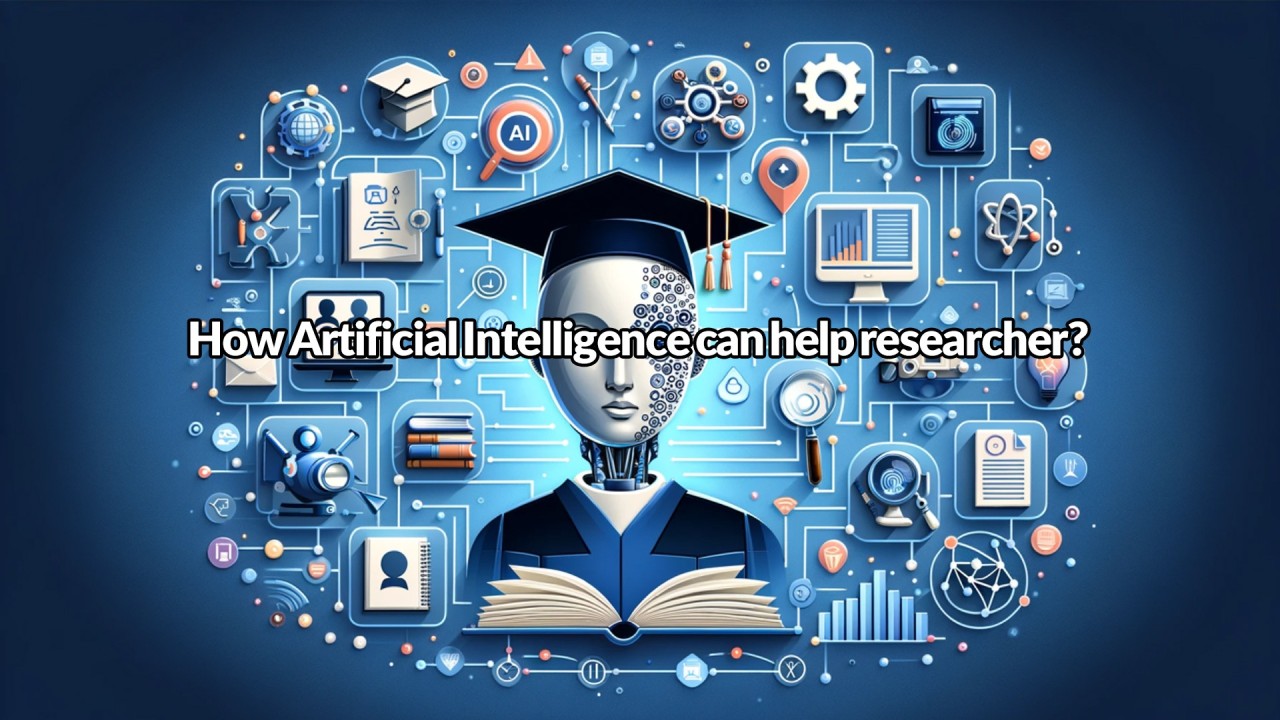
How Artificial Intelligence can help researcher?
Ali Majnoon
Developer (Web Scraping | Data Science | Energy System| Blogger | Self Publish Author | AI | ML | Computer Programmer & Google IT support)
Artificial Intelligence (AI) has become an invaluable tool for researchers, offering a range of benefits that enhance the efficiency, accuracy, and scope of research across various disciplines. Here are some key ways AI can assist researchers:
Enhancements in Research Processes
- Data Management and Analysis: AI algorithms can process large datasets quickly, identifying patterns, correlations, and trends that might be missed by human analysis alone. This capability is particularly useful in fields like genomics, climate science, and social sciences.
- Literature Review and Synthesis: AI tools can automate the process of scanning and summarizing vast amounts of literature, helping researchers stay up-to-date with the latest advancements and identify gaps in existing research. Natural Language Processing (NLP) techniques are particularly effective in this area.
- Experimental Design and Optimization: AI can optimize experimental designs by suggesting appropriate sample sizes and statistical methods, reducing human error, and lowering research and development costs.
Support in Academic Writing and Publishing
- Manuscript Preparation: AI tools can assist in writing and editing manuscripts, ensuring grammatical accuracy, and even suggesting alternative vocabulary to enhance the quality of academic writing. These tools can also help in tracking references and detecting plagiarism.
- Journal Selection: AI can match research papers with suitable journals, increasing the chances of acceptance and reducing the time spent on submissions.
Facilitating Interdisciplinary Research
AI enables researchers to analyze datasets from diverse fields, fostering interdisciplinary collaborations and expanding the scope of research projects. This capability allows researchers to make connections and generate insights that might not be possible through traditional methods[2].
Automation of Routine Tasks
AI automates repetitive and time-consuming tasks such as data collection, initial manuscript scans, and peer review, freeing researchers to focus on more complex and creative aspects of their work. This automation enhances the reliability and reproducibility of research by minimizing human error.
Challenges and Ethical Considerations
While AI offers significant advantages, it also presents challenges, such as the potential for misuse and ethical concerns regarding data privacy and research integrity. Researchers must ensure ethical use of AI tools and maintain a balance between AI-driven automation and human insight.
In conclusion, AI is a transformative force in academic research, enhancing productivity, enabling complex analyses, and fostering innovation. By integrating AI tools into their workflows, researchers can significantly improve the quality and impact of their work, provided they navigate the associated ethical and practical challenges responsibly.
The use of Artificial Intelligence (AI) in research raises several ethical considerations that must be addressed to ensure responsible and fair deployment. Here are some of the primary ethical concerns:
Bias and Fairness
AI systems are often trained on datasets that may contain societal biases. If these biases are not identified and mitigated, AI can perpetuate and even amplify discrimination against marginalized groups. This is particularly concerning in areas such as hiring, lending, and law enforcement, where biased AI decisions can have significant negative impacts.
领英推荐
Privacy and Data Protection
AI research frequently involves the collection and analysis of large amounts of data, including personal and sensitive information. Ensuring that data is collected, stored, and used in compliance with privacy regulations is crucial. Researchers must obtain informed consent from participants and implement robust data protection measures to prevent misuse.
Transparency and Explain ability
Many AI algorithms, especially complex ones like deep learning models, operate as "black boxes," making it difficult to understand how decisions are made. This lack of transparency can lead to accountability issues, especially when AI systems make errors or cause harm. Researchers are encouraged to develop explainable AI systems that provide insights into their decision-making processes.
Accountability and Responsibility
Determining who is responsible for the decisions made by AI systems is a significant ethical challenge. In cases where AI systems cause harm, it is important to establish clear accountability, whether it lies with the developers, users, or the organizations deploying the AI.
Intellectual Property and Ownership
AI research often involves collaboration and the use of existing datasets and models, raising questions about intellectual property rights and data ownership. Clear guidelines are needed to address these issues, ensuring fair distribution of benefits and responsibilities among stakeholders.
Social Impact and Job Displacement
AI technologies have the potential to disrupt industries and automate jobs, leading to social and economic impacts. Researchers should consider the broader social implications of their work and strive to minimize negative consequences, such as job displacement, while promoting a just transition.
Dual-use and Misuse
AI technologies developed for research can have both beneficial and harmful applications. Researchers must be mindful of potential dual-use scenarios and take steps to prevent misuse, ensuring that AI is developed and deployed in ways that align with societal values and ethical standards.
Addressing these ethical considerations requires a collaborative approach involving technologists, policymakers, ethicists, and society at large. By establishing robust ethical guidelines and fostering ongoing discussions, we can harness the potential of AI while upholding ethical principles and ensuring that its benefits are accessible to all.
I would be happy to know your opinion about it